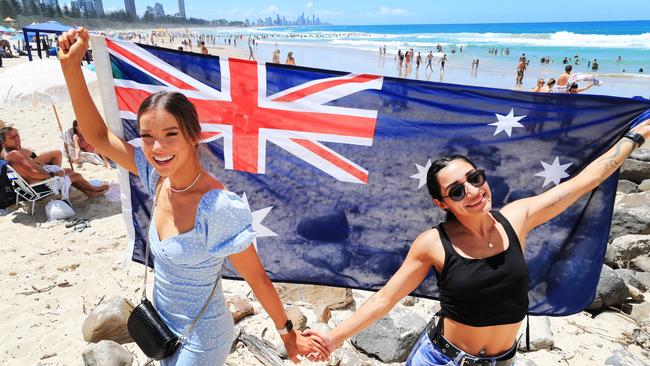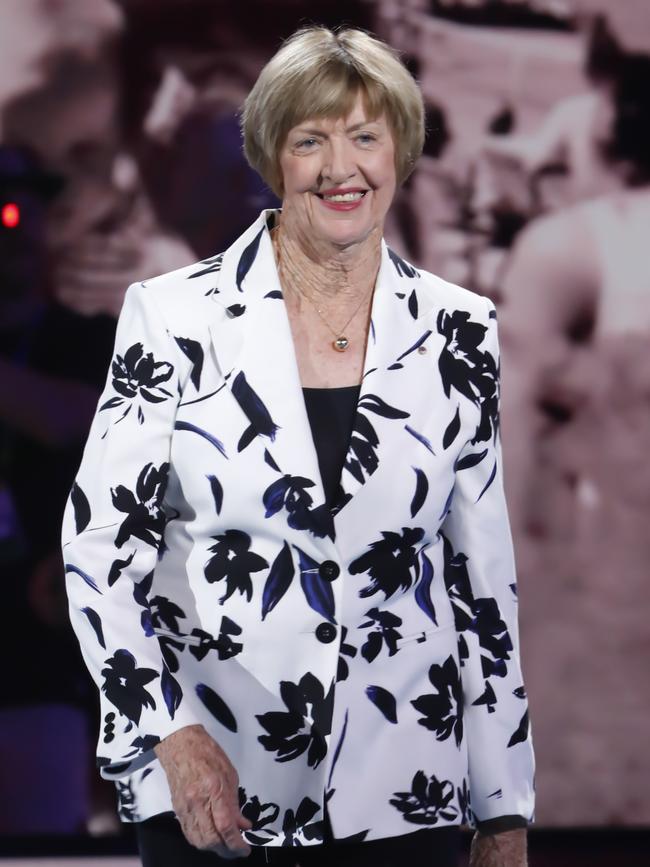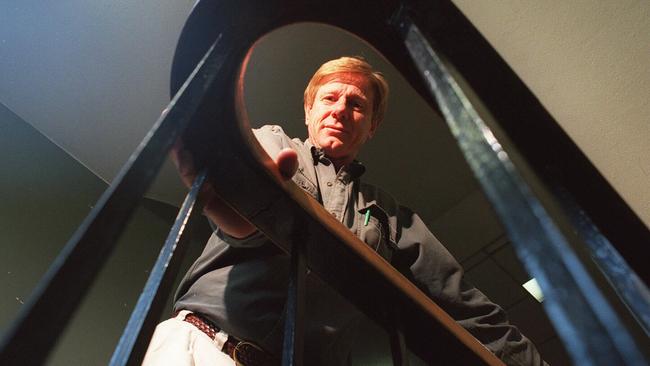
Not because most news consumers care. Nor because it’s good for newspaper sales, TV and radio ratings or news website traffic. None of the editors at The Sydney Morning Herald or The Age would have been surprised when their poll of support for changing the date of Australia Day from January 26 found only 28 per cent thought it a good idea.
No, the real reason for all the coverage is because it’s easy. Many staff are still away on holidays in January, the business and political communities are hibernating, the cricket is finished apart from the Big Bash League and confecting outrage about an award to Margaret Court or a tweet by Victorian Premier Daniel Andrews is easier than getting out of the office to do real reporting.
Mainstream media don’t bother to send reporters out to remote Aboriginal communities to find out whether Aboriginal Australians do want the date changed. The News Corp media usually ask Alice Springs deputy mayor Jacinta Price or businessman Warren Mundine to write pieces saying a change will make no difference to the most disadvantaged remote Indigenous Australians. And that’s dead right.
At Nine’s newspapers and at the ABC, highly politicised urban Aboriginals get free rein to argue the date is racist and changing it is a first order issue. They get lots of time on television even though hardly anyone turns up to their rallies. They are never asked if changing the date will improve the lives of Indigenous Australians.
I spend every January 26 in regional Australia where every second house drapes a flag from the front veranda. Here, people don’t spend their time on Twitter, parading views that cost nothing and achieve less. Here, people of all ethnicities are out having fun. The only surprise in the poll that led the front pages of The Sydney Morning Herald and The Age last Monday was that only 58 per cent of regional Australians thought the date should stay.
The sound and fury about Australia Day does not mean much for most people but there is an important lesson for leaders in media, sport and politics — don’t confuse a social media campaign with real world opinion.

I’d wager most Australians do not care that Margaret Court, the greatest woman tennis player of all time, has unfashionable views on gay marriage. She shares them with many of the nearly five million people who voted NO in the 2017 gay marriage plebiscite. A chunk of the 7.8 million who voted YES would probably respect her right to her own opinion.
The citation for Court’s AC, a Companion in the General Division of the Order of Australia, does not mention her role as a Pentecostal pastor, or her views on marriage. It says: “For eminent service to tennis as an internationally acclaimed player and record holding Grand Slam champion, and as a mentor to young sport persons.”
Her fellow Australian tennis great, Rod Laver, received the same award in 2016. Is there really a case that history’s greatest female tennis player should receive less acknowledgment than Laver?
Is anyone surprised Kerry O’Brien, former staffer to Gough Whitlam and one-time host of the ABC’s The 7.30 Report (as it was then known), refused his AO in protest against Court’s award? He would have informed the Governor-General’s office in writing last October that he would accept, but backflipped the weekend before the awards after the Court controversy.

Borrowing a line from Cardinal George Pell, is anyone really surprised a 78-year-old pastor does not support gender transition or gay marriage when neither has been socially acceptable for thousands of years until the past decade? Labor’s Julia Gillard and Penny Wong opposed gay marriage only 10 years ago.
Moral posturing can backfire. Can Cricket Australia really claim the moral high ground for not mentioning Australia Day during last Tuesday’s BBL matches, yet take three weeks to admit India’s Test cricket stars were racially abused by parts of the crowd at the Third Test in Sydney?
Politicians need to be careful not to confuse the applause of the one-eyed Twitter warrior with public opinion. Labor leader Anthony Albanese, one of the most honourable politicians I have known, has started referring to Prime Minister Scott Morrison as “Scotty from Marketing”, a put-down ubiquitous among the Twitter left, but borrowed from the comic newspaper The Betoota Advocate. It’s a reference to the PM’s former career as managing director of Tourism Australia.
Asked 12 months ago by Melbourne 3AW’s Neil Mitchell about the nickname, Morrison said: “There’s been lots … of stuff on social media, and news agencies reporting social media as if it’s truth, but that’s not my focus.”
Morrison was correct. Albanese, who has just reshuffled his front bench in the face of stagnant polling, won’t turn around his 60-28 deficit in Newspoll’s Better Prime Minister category with snide Twitterisms. Morrison accurately read the electorate and the historical truth when he said of the First Fleet arrival in 1788: “When those … ships turned up in Sydney all those years ago, it wasn’t a particularly flash day for the people on those vessels either.”
Cue instant outrage. Yet anyone familiar with Robert Hughes’s The Fatal Shore will know both how bad things were for the convicts and the link between their arrival and the damage done to Indigenous Australians.
While Twitter lit up with praise for criticisms of Morrison by Labor’s Indigenous Australians spokeswoman Linda Burney and the Greens’ Lidia Thorpe, Labor should not imagine this is a political winner. Twitter is way left of the electorate. It’s why the Coalition keeps winning elections even though it loses on social media.
This column would not normally quote Crikey or its correspondent Guy Rundle, but Rundle got it bang on last week when he warned the left’s attempts to paint Morrison as a far-right Trump figure would be self-defeating: “The bitter fact for progressives to accept is that Morrison is now perceived as a quietly competent leader, avoiding the chaos seen in the UK and the US, and not pushing his own religious values into the general social space. Culturally he is governing to the left of himself in a country that has avoided the upsurge of a right.”
Indeed. Calling a PM who is presiding over the largest public spending program since World War II a right-wing fanatic just won’t cut it with voters.
Finally, never imagine awards are apolitical. Interested readers should look at the website of last year’s controversial AM recipient Bettina Arndt (bettinaarndt.com.au) to see the background to protests against her award. Arndt had crossed swords with this year’s Australian of the Year, Grace Tame, over an interview Arndt did with the sex-offending maths teacher Tame has fought to identify as perpetrator of crimes against her.
Chris Mitchell received an AO in the 2019 Australia Day honours for services to Aboriginal education, journalism and the media industry. He is an ambassador for the Australian Indigenous Education Foundation.




Want to know why the media gives so much attention to annual Australia Day awards outrage and Invasion Day protests?